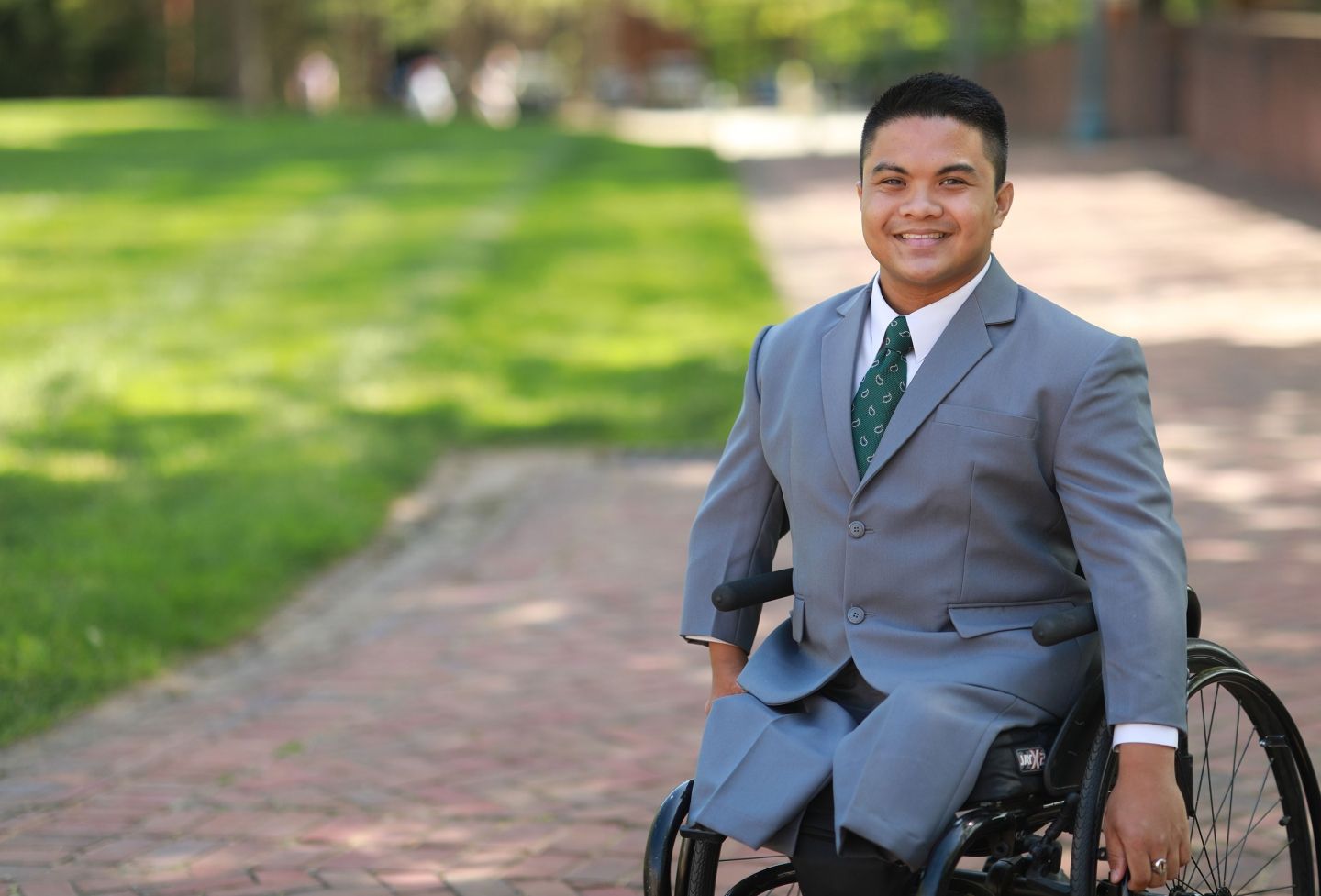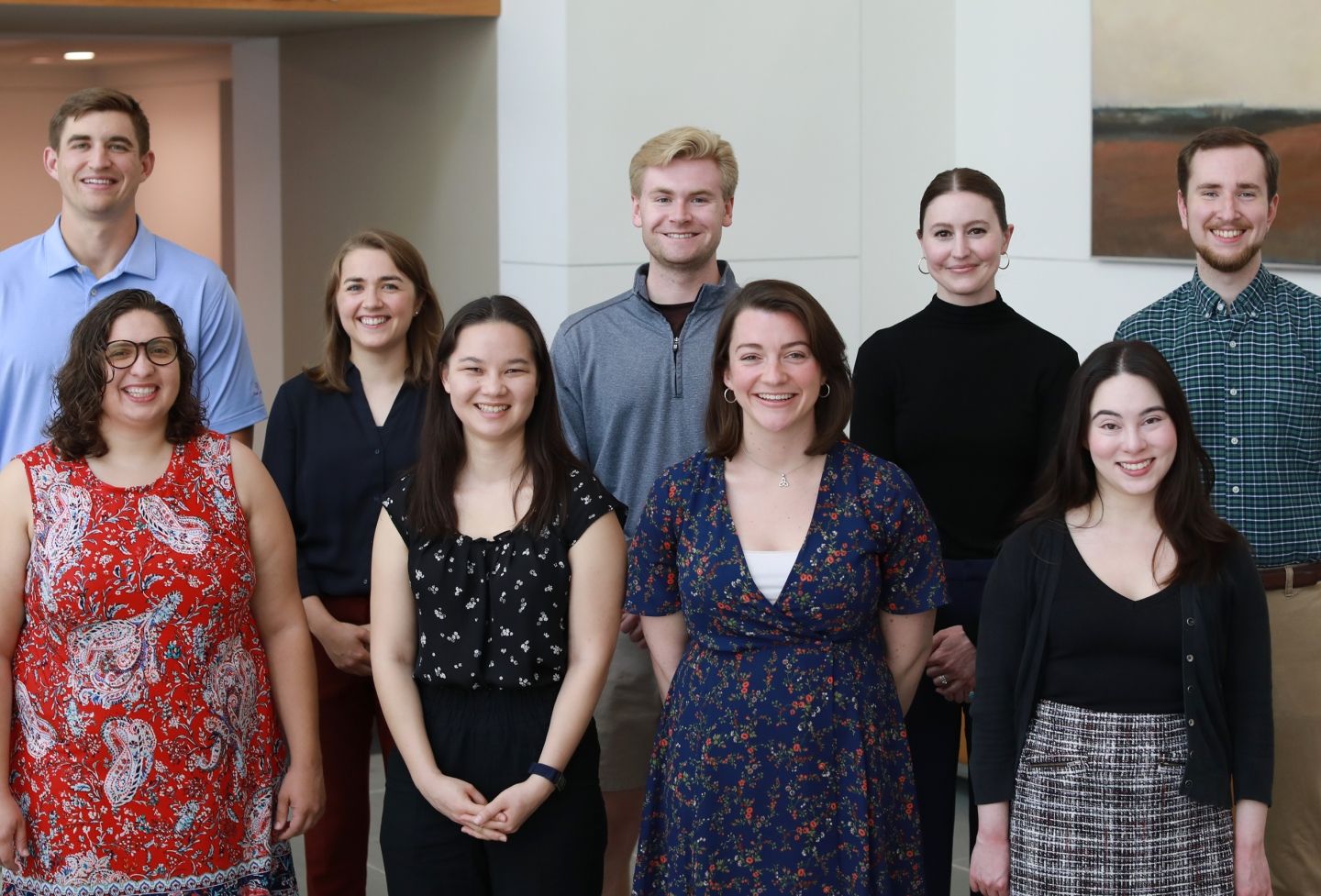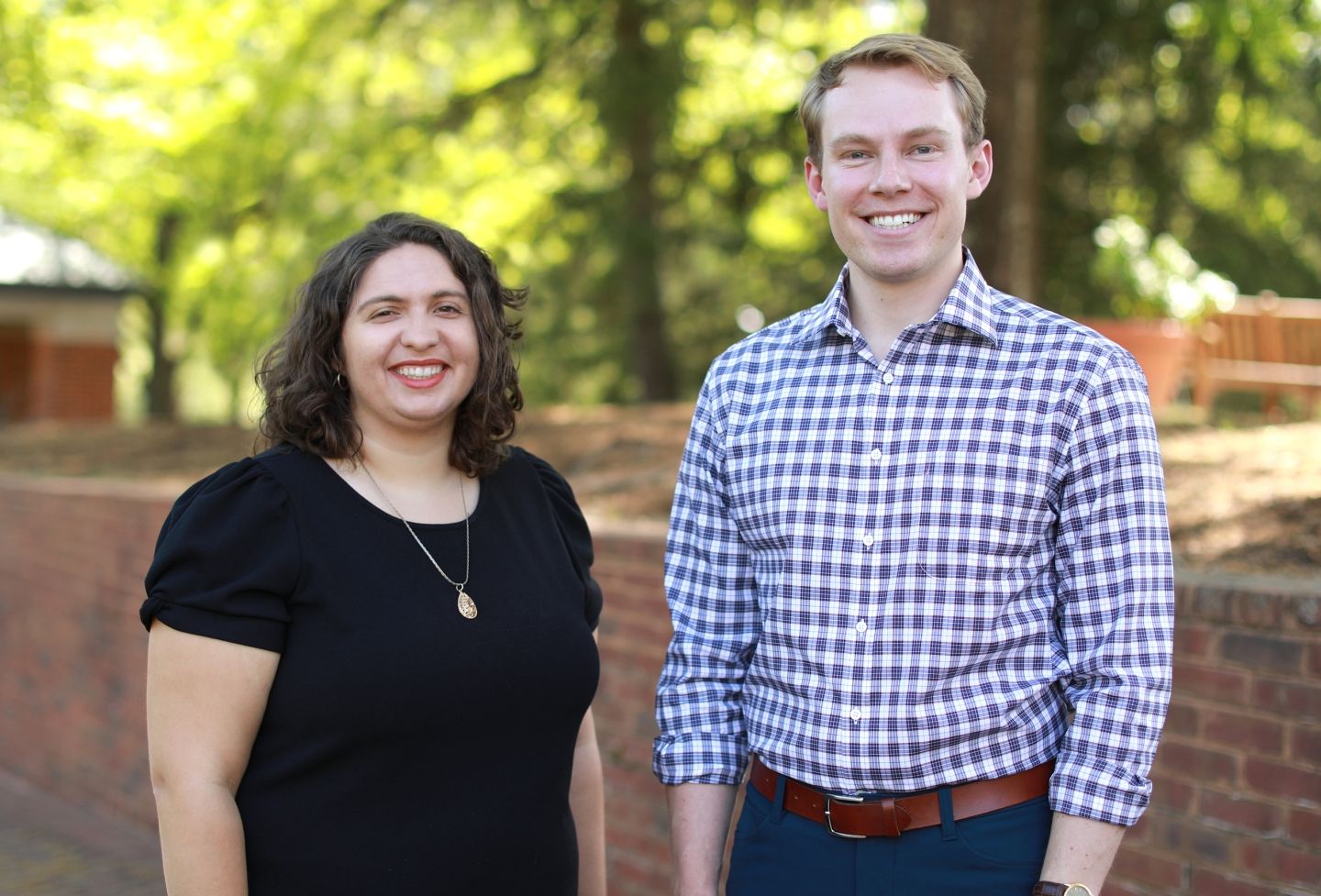A student and graduate of the University of Virginia School of Law have worked together to help reduce public housing evictions in Charlottesville by 91 percent from 2011 to 2014.
In an effort that started with their involvement in the school's Litigation and Housing Law Clinic, third-year law student Meryem Dede and Kimberly Rolla '13, a UVA Law Powell Fellow, helped change eviction policies used by the Charlottesville Redevelopment and Housing Authority.
"We really hope the policy is a win-win for everyone," Rolla said. "It's a change in culture. We hope we're improving efficiency and making residents feel more stable in their housing, too."
The policy, which was formally adopted by CRHA in January, essentially makes eviction a last resort by clarifying resident responsibilities and providing residents ways to avoid eviction. It also helped to reduce the number of public housing court cases handled by the housing clinic, which often resulted from lack of communication, such as the resident not understanding what is needed to get back in good standing with the housing authority.
Rolla and Dede deepened their interest in housing issues through the Litigation and Housing Law Clinic, a class Rolla took in 2012-13 academic year and then supervised Dede in the following year. Offered in conjunction with the Legal Aid Justice Center, the clinic gives students the opportunity to learn housing law and represent clients in housing-related cases while under the supervision of attorneys.
Rolla started working with the Public Housing Association of Residents in 2010, her first year in law school. As a student, she helped advocate for eviction prevention by speaking on behalf of LAJC at public meetings and drafting written public comments.
After graduation and as a Powell Fellow, Rolla worked with residents to design and implement a plan to improve the eviction policy in Charlottesville while working at LAJC. Powell Fellows, who are selected through a competitive application process, receive a salary for two years to work in public service.
Marked changes to local eviction practices began in 2012 when PHAR began an organizing campaign around evictions that led to informal changes in housing authority practice. When residents decided these changes needed to be formalized, Rolla drafted an amended Eviction and Termination Policy for Charlottesville's public housing, negotiated with the housing authority and advocated for the policy's adoption.
"The housing clinic allowed me to build the relationships and skills necessary to hit the ground running as an attorney at LAJC," Rolla said. "My project has allowed me to employ a 'law and organizing' model in my day-to-day legal practice, providing legal representation and advice to community organizations to produce broader change than would be possible through individual representation alone."
While with the housing clinic, both Rolla and Dede worked with residents who were facing evictions, and saw a pattern in the kinds of cases they were handling. That common experience led to Dede's involvement.
Dede helped identify the differences between the CRHA and PHAR policies and lent support in meetings with the housing authority and city council.
"The housing clinic is my favorite class I've taken at law school and one of my most valuable learning experiences," Dede said.
After the clinic ended, Dede designed an independent research course on law and organizing, which allowed her to continue to work with PHAR. She planned and implemented community legal education programs, attended PHAR board meetings and conducted legal research.
"Small changes can make a big difference," Dede said of the new policy.
Founded in 1819, the University of Virginia School of Law is the second-oldest continuously operating law school in the nation. Consistently ranked among the top law schools, Virginia is a world-renowned training ground for distinguished lawyers and public servants, instilling in them a commitment to leadership, integrity and community service.


